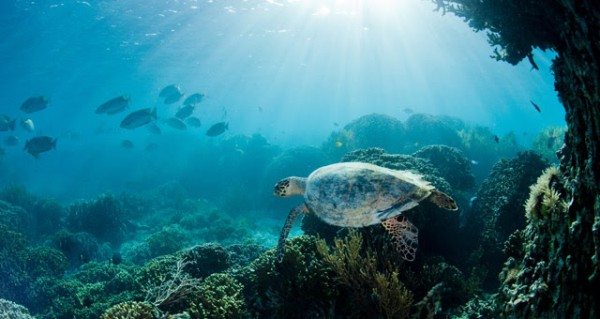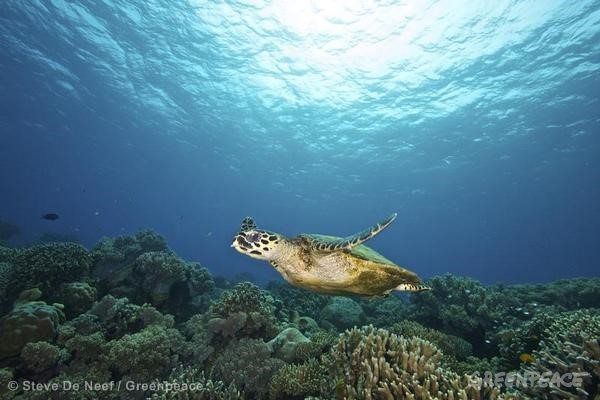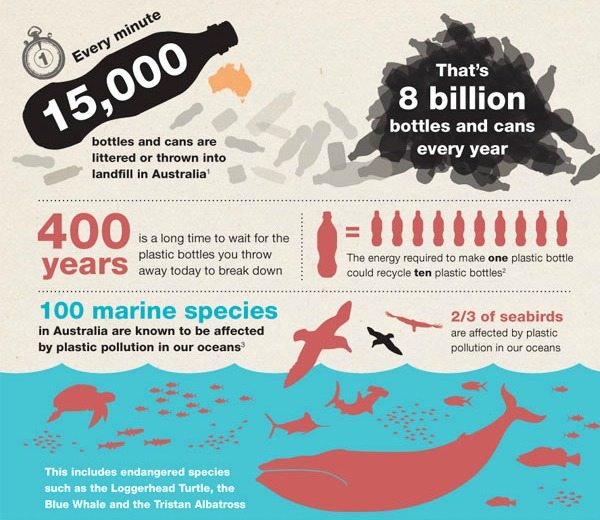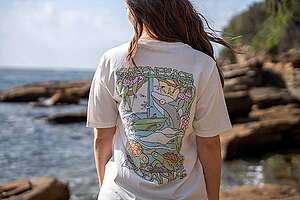Why are sea turtles dying at an unprecedented rate near Sydney? And what can do about it?
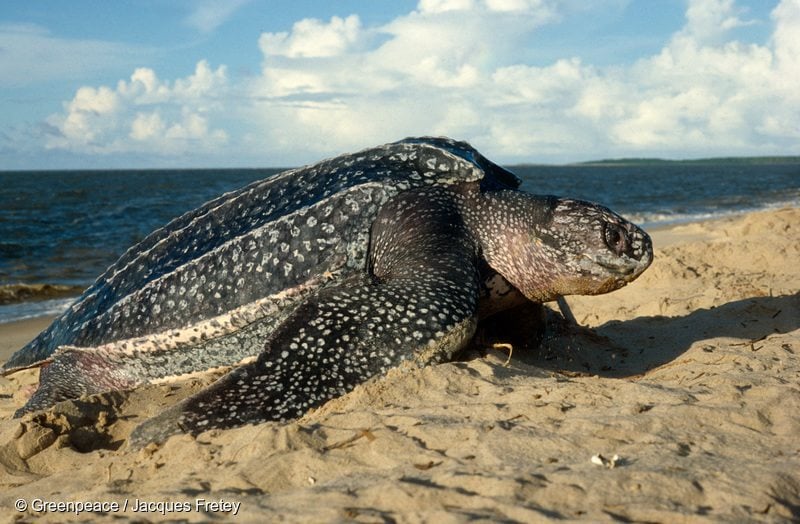
Marine plastic pollution has become a huge problem affecting all of the world’s oceans – up to a third of this material comes from the beverage industry. This material is known to be the cause of injuries and deaths of numerous marine animals and birds as they mistake it for prey and eat it. Many die as a result, literally starving on a full stomach.
Earlier this year, the wildlife hospital in Taronga Zoo reported significant increases in turtles that need care due to plastic ingestion. Sea turtles rescued by the zoo have been found to be constantly excreting plastic – unsurprising considering the fact that, according to this study from the University of Connecticut, there are more than 5 trillion pieces of plastic floating in the world’s oceans.
“Every day we clean out the pool the turtles live in, and there’s plastic debris in there,” Libby Hall, the manager of the Sydney wildlife hospital, told the Guardian. “The process and the number of animals it’s affecting has accelerated dramatically over the past 10 years.”
Plastic in the oceans: beyond Australia
This problem extends far beyond Australia, with phenomena like the ‘Trash Vortex’ – a vast area in the North Pacific ocean that slowly swirls millions of kilograms of rubbish in a never-ending rotation.
Solutions: we can stop turtles dying from plastic
Recently, we heard some great news. After decades of campaigning, people in NSW will soon be able to claim a 10c refund on empty drink bottles and cans – a system proved effective in increasing recycling rates in South Australia and Europe. It’s a fantastic move that will prevent millions of plastic containers from ending up in our forests, beaches, rivers and oceans.
But as NSW joins the Northern Territory and Southern Australia, more than half of Australia is left without container deposit legislation. A combination of difficult and convoluted recycling systems and lack of awareness means that there’s still a long way to go to stop plastic pollution in Australia. Luckily, passionate people all around the country are working hard to make recycling easy, efficient and popular for all Australians.
How can you save the turtles?
Using less plastic and learning about recycling might not sound like a lot of fun, but it could save a turtle’s life. Here are 10 practical and achievable things you can start doing right now to cut down your plastic use and help prevent the senseless death of marine animals:
- Sign the petition to ask to Queensland Environment Minister to sign onto a Cash for Containers scheme and demand they step up to stop litter.
- Learn more about plastics and how to recycle them. This blog will take you through what you can and can’t recycle, and other organisations like Planet Ark have great learning resources to help guide you.
- Teach your friends and family about the importance of proper recycling. More people would think twice about littering if they knew the consequences plastic pollution has on our waterways, oceans and marine life. Share the information you find and try to positively influence the consumption and recycling habits of those around you.
- Join an initiative to help clean up your local area. Whether it’s participating in the annual Clean Up Australia Day or joining a Responsible Runners group – there are lots of ways you can have fun and curb plastic pollution at the same time.
- Or, if you’d prefer, fly solo and join the Take3 challenge: pick up three pieces of litter from your local beach, river, park or street every day.
- Check the products you buy for microbeads. Often the use of microbeads – tiny plastic beads found in many cosmetics and toiletries – is advertised, but they can also be hiding in the ingredients list. Luckily, the folks at Beat the Microbead have made an app to help you find out if these tiny pollutants are in your favourite products.
- Remember to bring your reusable containers with you. Cloth shopping bags, stainless steel water bottles and travel mugs are great – as long as you’ve got them with you when you need them.
- Opt out of disposable plastics when you’re eating out. Doing things like bringing your own container and recyclable or compostable cutlery for take-out meals and saying no to straws may seem strange, but it’ll help you cut down on one-use plastics.
- Think about excess packaging whenever you’re making purchases. Try to veer towards foods and goods packaged in paper or other recyclable materials rather than plastic wrapping – or better yet, nothing at all! You can read here about Berlin’s new no-packaging supermarket!
- For the brave: go plastic free! Life without plastic can be difficult, and expensive, but if you have the dedication it’s a worthy challenge. Read about the path to a plastic free life in the Life Without Plastic and My Plastic Free Life blogs.
[optin-monster-shortcode id=”yvqepuxvguhcvfh22aie”]

